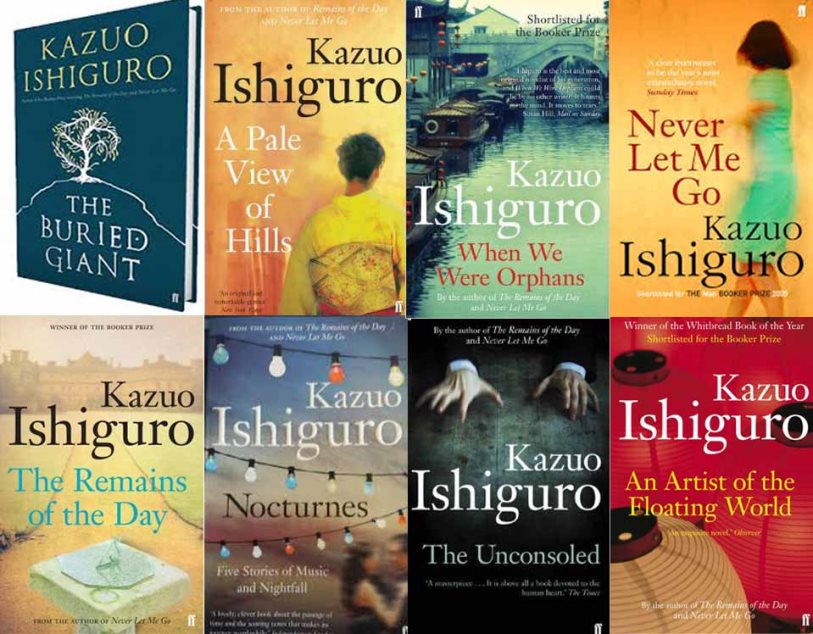Kazuo Ishiguro, the 62-year-old British writer of Japanese origin has won the 2017 Nobel Prize for Literature. Ishiguro is one of the most celebrated contemporary fiction authors in the English-speaking world. Ishiguro's work is most associated with themes of memory, time and self-delusion. The Swedish Academy announced Thursday morning that this year’s Nobel Prize in literature has been awarded to the English author Kazuo Ishiguro. The novelist was highly praised by the Swedish Academy as a writer "who, in novels of great emotional force, has uncovered the abyss beneath our illusory sense of connection with the world".
BREAKING NEWS The 2017 #NobelPrize in Literature is awarded to the English author Kazuo Ishiguro pic.twitter.com/j9kYaeMZH6
— The Nobel Prize (@NobelPrize) October 5, 2017
Sara Danius, the permanent secretary of the Swedish Academy said that “If you mix Jane Austen and Franz Kafka, then you have Kazuo Ishiguro — but you have to add a little bit of Marcel Proust into the mix, and then you stir, but not too much, and then you have his writings”. Ishiguro, the first writer of Japanese birth to win the Nobel since Kenzaburo Oe in 1994.
Ishiguro was born in Nagasaki on 8 November 1954, the son of Shizuo Ishiguro, a physical oceanographer, and his wife Shizuko. In 1960 his family, including his two sisters, moved to Guildford, Surrey, as his father could begin research at the National Institute of Oceanography. He read English and philosophy at the University of Kent and MA in creative writing at the University of East Anglia, where his tutors were Malcolm Bradbury and Angela Carter.
Ishiguro's thesis became his critically acclaimed first novel, A Pale View of Hills, which was about a Japanese woman living in England trying to come to terms with her daughter's death, published in 1982. He is also the author of the novels: An Artist of the Floating World (1986), The Remains of the Day (1989), The Unconsoled (1995) When We Were Orphans (2000), Never Let Me Go (2005) and The Buried Giant (2015).
The Remains of the Day was awarded the Man Booker Prize for Fiction in 1989. It is one of the most highly regarded post-war British novels. It ranks 146th in a composite list, compiled by Brian Kunde of Stanford University, of greatest twentieth-century English-language novels. The film adaptation of the novel, made in 1993 and starring Anthony Hopkins and Emma Thompson, was nominated for eight Academy Awards.
Never Let Me Go was shortlisted for the 2005 Booker Prize, for the 2006 Arthur C. Clarke Award and for the 2005 National Book Critics Circle Award. Time magazine named it the best novel of 2005 and included the novel in its TIME 100 Best English-language Novels from 1923 to 2005. The novel also received an ALA Alex Award in 2006. A film adaptation starring Carey Mulligan, Keira Knightley and Andrew Garfield, directed by Mark Romanek was released in 2010 and a Japanese television drama aired in 2016.
Ishiguro has also written a number of screenplays, including The White Countess and The Saddest Music in the World, as well as other short stories. 2009, he published "Nocturnes: Five Stories of Music and Nightfall," a collection of short stories. He also wrote an opinion piece decrying the rise of hate crimes in Britain as a result of the 2016 United Kingdom European Union membership referendum. He was made an OBE in 1995 and received the Chevalier de l'Ordre des Arts et des Lettres from the French government in 1998. Ishiguro counts Fyodor Dostoyevsky and Marcel Proust amongst his influences. His works have also been compared to Salman Rushdie, Jane Austen, and Henry James, though the novelist himself rejects these comparisons.
The Nobel Prize in Literature has become the world's most prestigious literature prize and comes with winnings of 9m Swedish krona (£832,000).




